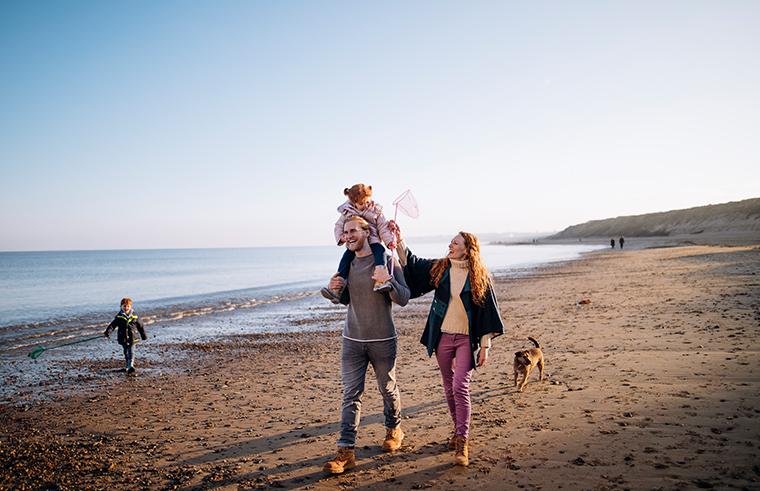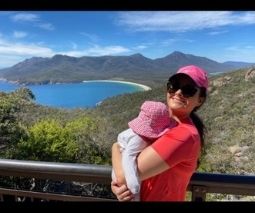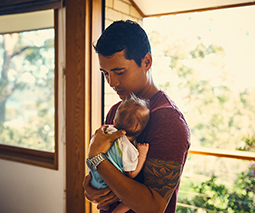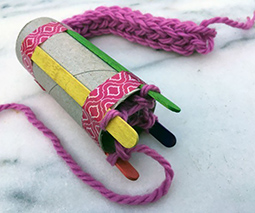Financial independence: Is it possible to be a parent and not need to work?

Lacey Filipich is the author of Money School and she argues that we should be aiming for financial independence — that is, not needing a wage to survive. But the idea of being financially secure enough to live our lives the way we choose (and not work) might seem far-fetched to many parents.
“There is an alternative”
“I do think it is quite radical because it’s not commonly talked about,” Lacey says.
“I think most of us expect to spend 40, 50 years working, try to buy our own home, put a little bit aside, have some superannuation, maybe retire on a pension. I think we’ve grown to expect that end of life retirement idea. But there is an alternative.”
Listen to Lacey Filipich on Feed Play Love
For families, it may be a case of starting early or simply keeping this goal in the back of mind and adjusting the way they manage their money as they can.
Lacey says her own mother began working towards financial independence at 49, after years as a single parent. She then achieved financial independence in her early 60s.
Her point? It’s never too late to get started.
“There will be times when it’s too hard,” Lacey agrees. “There will be times when you don’t have spare cash and when managing your money is like a survival skill and that is okay.”
“The thing is to think about when you do get to a point where you have a bit more freedom. So the kids might be earning some pocket money or maybe they’re starting to get part time jobs or moving out of home. It could take you a decade. But when that comes around, that’s the time to start thinking about it.”

Be cheap to run
Lacey says she got off to a great start when it came to financial ‘intelligence’ and this is something parents can teach their own kids from today.
“I [was given a] financial education by my parents. I realise that I am very fortunate to have had that,” she explains. “Having taught me young, I started saving when I was young. So from the age of 10, I saved half of every dollar I earned.
“It’s just automatic for me now. So if I was earning $60,000 a year, in my head that’s $30,000, like straight up. That’s how I think and it’s just become an ingrained habit. I’m quite cheap to run!” she adds, explaining her frugality.

Choose security over spending
Lacey bought her first property when she was a uni student, and has continued to invest in property as well as diversifying to shares.
For parents, it can be hard to imagine how you’ll ever get to a point where you can be saving significant chunks of your income, let alone buying extra properties, but Lacey said it can be as easy as biding your time and putting the brakes on spending.
She explains that many of us spend because the act of acquiring something new gives us a bit of a feel-good hit, but if we have an override that urge it will pay dividends. Perhaps literally.
“Hide the money,” Lacey suggests to parents (and others) who are having trouble controlling their spending.
“Have your savings in a place where you can’t see it, have it transfer automatically, hide your account, don’t connect it to any cards and then whatever’s left you can spend.”
Small changes
You don’t have to upturn your whole life to begin adopting healthier money habits. Lacey says start now and start small.
“You can do lots of little things,” she explains. “If you can set up an automatic transfer [even if] it’s only $10 a week at the moment to a savings account, at least it’s something. You’re getting the habit going. When there’s more money available, you can transfer more to that, you can increase the amount.”
“When you’re parenting, the more you can automate, the better,” Lacey advises.
“If you’re on a salary and you can get your payroll to send money off to that savings account without you having to even look at it. Do it – one less thing to think about if you’ve got the saving habit going.”

Baby steps are actually big steps
There’s no rush to study up on investing if you’re up to your eyeballs in sleepless nights and childcare drop-offs.
“You can learn about all the investing stuff later,” Lacey reassures. “You can decide whether you like property or shares or bonds or whether you just want cash that pays interest. You can decide later, but the savings is the first thing.”
“So I think if you’re time poor at the moment or you’ve got too much going on your life, just focus on how you can get that saving habit going. Worry about the amount later as you get settled in, and then you can learn about investing when you’re ready and you have the mental space to do so.”
Sounds like brilliant advice to us.









